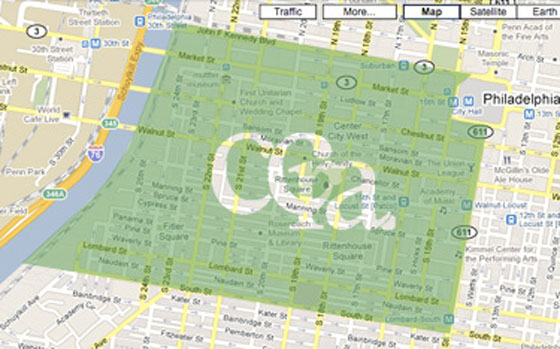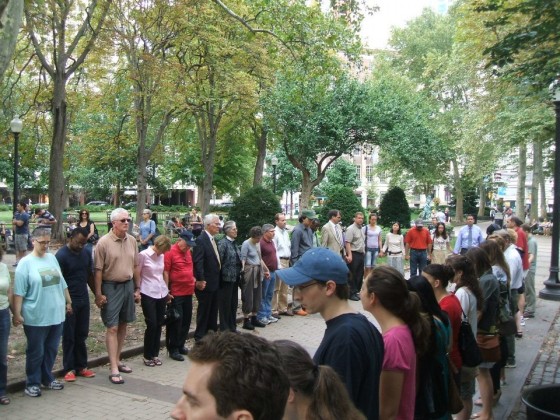Perhaps inspired by the new zoning code, the Center City Residents Association (CCRA) has been working through a strategic planning process over the past year. They’ve conducted research and hosted numerous community meetings to accomplish this goal. But more than simply coming up with a vision for development, like parks and retail, CCRA is studying how the group exists as an organization and how it can strengthen itself. They’re examining their resources, discussing where to direct future efforts, and attempting to strengthen communication between members, other civic groups, and city agencies.
“We’re looking at the environment the organization operates in, what is it capable of?” said CCRA member Frederick Murphy, Ph.D., who’s played a major role in compiling the report. “We look at that and other areas and try to find areas where [CCRA] can make a meaningful contribution to the neighborhood.”
Murphy, a Temple University professor, worked on the Study of the Philadelphia Knowledge Economy about 10 years ago, and recently authored a report that claims Sugarhouse Casino is actually taking money out of the city. The CCRA crew undertaking the report, its strategic planning committee, applied techniques non-profits use to highlight their strengths and improve upon weaknesses.
Navigating the web of relationships spun between individuals and the institutions affecting their lives at a local level is one function of a civic group, said Murphy. The plan has sought to discern things like the issues important to neighbors, and will set CCRA’s civic initiatives moving forward. Members are still evaluating the plan before the entirety of its findings are publicized.
Some numbers, like demographics, were released in the group’s September newsletter. There are 26,036 people in the neighborhood, according to the 2010 census, but only 38% own their homes. Families are concentrated in the Fitler Square area, and seniors generally live near Rittenhouse Square. Young, single people make up the majority of the neighborhood, and these people are typically well educated.
Moving forward, those type of numbers will inform the CCRA’s vision. They’ll seek to develop and support projects that fit into the interests of all the people who live in the neighborhood, with a focus on homeowners, the group was created to represent. The new zoning code, which requires all civic organizations to amp up their duties in terms of reporting zoning projects, will add a new factor to a volunteer group.
“The code is an attempt to put into words what custom developed,” said Stephen Huntingdon, CCRA member. However, Huntingdon expects an adjustment period of a year or so before groups fully warm to the new process. We shall see…
–Lou Mancinelli


